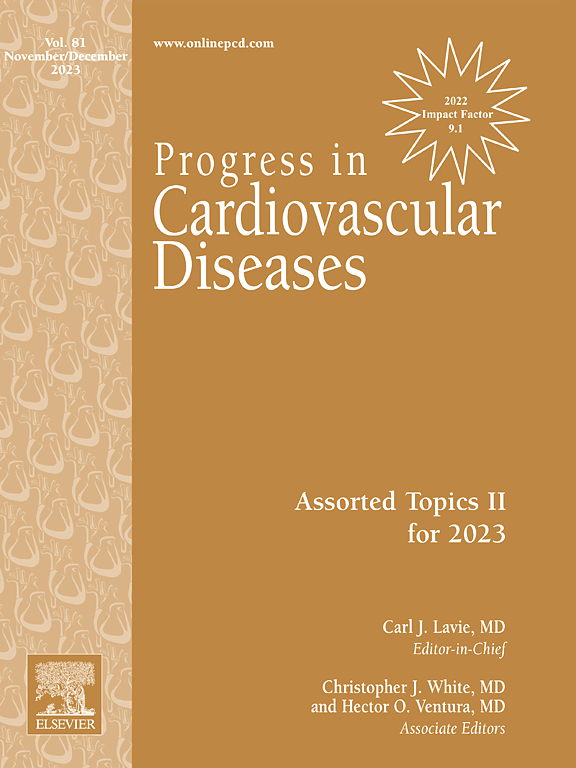Substances use and risk of hypertension before midlife in military young adults: CHIEF cohort study, 2014–2020
IF 5.6
2区 医学
Q1 CARDIAC & CARDIOVASCULAR SYSTEMS
引用次数: 0
Abstract
Background
The use of substances, e.g., tobacco and betel nut, are prevalent among military personnel in Taiwan, whereas some specific substances such as alcohol use are forbidden in military base. There were inconsistent findings for the incidence of hypertension with habitual substances use in diverse populations, while no studies were carried out in the military.
Methods
A total of 2419 Taiwanese military personnel, aged 18–39 years, who were not taking any antihypertensive agents and did not have a baseline systolic blood pressure (SBP) ≥130 mmHg and/or diastolic blood pressure (DBP) ≥80 mmHg were followed for incidence of hypertension from baseline (2014) through the end of 2020. Alcohol, tobacco and betel nut use status (active vs. former/never) were self-reported by each participant at baseline. New-onset hypertension of each participant was defined by an average of two resting BP measurements in the annual health examinations (2015–2020). Multivariable Cox regression analysis with adjustments for baseline BP and other potential covariates were performed to determine the risk of incident hypertension with each substance use. Five-year absolute changes in BP level with specific substance use were compared using analysis of covariance (ANCOVA).
Results
There were 867 active smokers (35.8 %), 237 active betel nut chewers (9.8 %) and 961 active alcohol consumers (39.7 %) at baseline. During a median follow-up of 5.8 years, 911 new-onset hypertension events (37.7 %) were observed. While compared to those without any substances use, merely active holiday alcohol users had a significantly lower risk of incident hypertension [hazard ratio (HR) and 95 % confidence interval: 0.72 (0.58–0.89)]. The 5-year diastolic BP increase (mmHg) was borderline significantly lower in active alcohol users on holidays as compared to former/never alcohol users (4.02 (standard deviation =9.01) and 4.76 (9.42), p = 0.07). The risk of incident hypertension was not significant in active smokers and active betel nut users, while the 5-year BP increase level was significantly greater in active smokers than former/never smokers (5.60 (9.96) vs. 4.42 (9.22), p = 0.03).
Conclusion
Our findings suggest that military young personnel consuming alcohol only allowed on holidays had a lower incidence of new-onset hypertension. On the contrary, the 5-year BP change may increase greater with habitual smoking, though the risk of new-onset hypertension was not affected.
军队青壮年中年前的药物使用与高血压风险:首席队列研究,2014-2020 年。
背景:台湾军人普遍使用烟草和槟榔等物质,而一些特定物质如酒精在军事基地是禁止使用的。关于高血压发病率与习惯性使用药物的关系,在不同人群中的研究结果不一致,而在军队中则没有研究:方法:从基线(2014 年)到 2020 年底,对未服用任何降压药且基线收缩压 (SBP) ≥130 mmHg 和/或舒张压 (DBP) ≥80 mmHg 的 2419 名 18-39 岁台湾军人进行了高血压发病率跟踪调查。酒精、烟草和槟榔的使用状况(活跃与曾经/从未)由每位参与者在基线时自我报告。每位参与者新发高血压的定义是在年度健康检查(2015-2020 年)中两次静息血压测量的平均值。在对基线血压和其他潜在协变量进行调整后,进行了多变量 Cox 回归分析,以确定每种药物使用导致的高血压发病风险。使用协方差分析(ANCOVA)比较了使用特定药物五年后血压水平的绝对变化:结果:基线时有 867 名活跃的吸烟者(35.8%)、237 名活跃的槟榔咀嚼者(9.8%)和 961 名活跃的饮酒者(39.7%)。在 5.8 年的中位随访期间,共观察到 911 例新发高血压(37.7%)。与未使用任何药物的人群相比,仅在节假日积极饮酒的人群发生高血压的风险明显较低[危险比(HR)和 95% 置信区间:0.72 (0.58-0.89)]。与以前/从未饮酒者相比,节假日积极饮酒者的 5 年舒张压升幅(毫米汞柱)明显低于以前/从未饮酒者(4.02(标准差=9.01)和 4.76(9.42),P = 0.07)。积极吸烟者和积极槟榔使用者发生高血压的风险并不明显,而积极吸烟者的 5 年血压升高水平明显高于曾经/从不吸烟者(5.60 (9.96) vs. 4.42 (9.22),p = 0.03):我们的研究结果表明,只允许在节假日饮酒的青年军人新发高血压的发病率较低。结论:我们的研究结果表明,只允许在节假日饮酒的军队青年新发高血压的发病率较低,相反,习惯性吸烟者的 5 年血压变化可能会更大,但新发高血压的风险不受影响。
本文章由计算机程序翻译,如有差异,请以英文原文为准。
求助全文
约1分钟内获得全文
求助全文
来源期刊

Progress in cardiovascular diseases
医学-心血管系统
CiteScore
10.90
自引率
6.60%
发文量
98
审稿时长
7 days
期刊介绍:
Progress in Cardiovascular Diseases provides comprehensive coverage of a single topic related to heart and circulatory disorders in each issue. Some issues include special articles, definitive reviews that capture the state of the art in the management of particular clinical problems in cardiology.
 求助内容:
求助内容: 应助结果提醒方式:
应助结果提醒方式:


